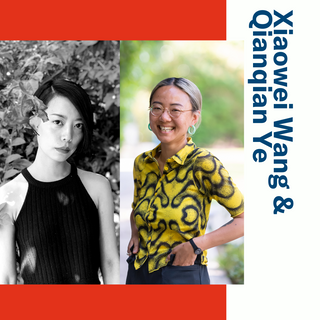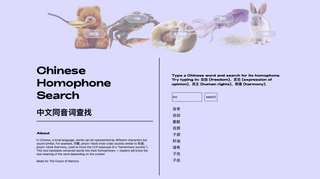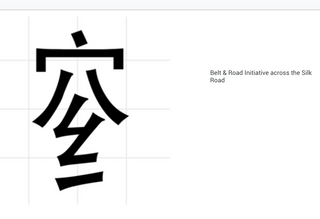In what ways have you used power in your life against others? In what ways have you addressed harm, in what ways have you attempted repair? In what ways have you yielded power so that others with less of it may gain some? When you take power, do you intend to take it for yourself only? And in a society where money, power and respect are interlinked, what is your relationship to these three?
The questions Xiaowei Wang asks in their essay "Shadow Visions" could do no better to explain the challenges developers face in designing social media. To address the question even more directly, Wang' and fellow artist and educator Qianqian Ye launched The Future of Memory (FOM) in 2020. As a "provocation on algorithmic content moderation, power, profit and the ever-shifting nature of language online," FOM is a powerful collection of works on the reality of "algorithmic censorship."
Law Professor Jennifer Cobbe coined the term in 2019 to describe the new realities that digital citizens now face each day through social media platforms like Facebook and WeChat. To make those ideas practical to non-technologists, Wang and Ye released a toolkit, documenting various projects to creatively resist algorithmic censorship, such as disguising subversive messaging in the Chinese (Mandarin) character system and using Morse code.
What piqued our interest was the work of interactive fiction of the same name. In the Future of Memory game, you play as a new engineer at a large technology company on their content moderation team. Faced with the choice to invest in human vs. machine-driven content moderation, a set of choices arise that determine both your professional and personal futures.
In this talk, we discussed the background of the project and why Wang and Ye manifested their ideas in a game format. We also talked about the challenges and opportunities of using games and interactive fiction to tackle political and cultural concerns.
About the Speakers
Xiaowei R. Wang, PhD is an artist, writer, organizer and coder. They are the author of the book Blockchain Chicken Farm: And Other Stories of Tech In China's Countryside, a 2023 National Book Foundation Science and Literature Award winner. Their multidisciplinary work over the past 15 years sits at the intersection of tech, digital media, art, and environmental justice. As of 2023, they are one of the stewards of Collective Action School (formerly known as Logic School), an organizing community for tech workers, a faculty member at ELISAVA’s Master in Design for Responsible AI and a Postdoctoral Scholar at the Center on Race and Digital Justice.
Qianqian (Q) Ye (she/they) is a Chinese artist, creative technologist and educator based in Los Angeles (Gabrielino-Tongva Land). Trained as an architect, she creates digital, physical, and social spaces exploring issues around gender, immigrant, power, and technology. Their most recent collaborative project, The Future of Memory, was a recipient of the Mozilla Creative Media Award. At the Processing Foundation, Qianqian is the Lead of p5.js, an open-source art and education platform that prioritizes access and diversity in learning to code, with over 1.5 million users. She currently teaches creative coding as an Adjunct Assistant Professor at USC Media Arts + Practice and 3D Arts at Parsons School of Design. For 2022-2023, Qianqian is a Civic Media Fellow at USC Annenberg Innovation Lab.
Photos credit Chloe Jackman of Xiaowei.
In what ways have you used power in your life against others? In what ways have you addressed harm, in what ways have you attempted repair? In what ways have you yielded power so that others with less of it may gain some? When you take power, do you intend to take it for yourself only? And in a society where money, power and respect are interlinked, what is your relationship to these three?
The questions Xiaowei Wang asks in their essay "Shadow Visions" could do no better to explain the challenges developers face in designing social media. To address the question even more directly, Wang' and fellow artist and educator Qianqian Ye launched The Future of Memory (FOM) in 2020. As a "provocation on algorithmic content moderation, power, profit and the ever-shifting nature of language online," FOM is a powerful collection of works on the reality of "algorithmic censorship."
Law Professor Jennifer Cobbe coined the term in 2019 to describe the new realities that digital citizens now face each day through social media platforms like Facebook and WeChat. To make those ideas practical to non-technologists, Wang and Ye released a toolkit, documenting various projects to creatively resist algorithmic censorship, such as disguising subversive messaging in the Chinese (Mandarin) character system and using Morse code.
What piqued our interest was the work of interactive fiction of the same name. In the Future of Memory game, you play as a new engineer at a large technology company on their content moderation team. Faced with the choice to invest in human vs. machine-driven content moderation, a set of choices arise that determine both your professional and personal futures.
In this talk, we discussed the background of the project and why Wang and Ye manifested their ideas in a game format. We also talked about the challenges and opportunities of using games and interactive fiction to tackle political and cultural concerns.
About the Speakers
Xiaowei R. Wang, PhD is an artist, writer, organizer and coder. They are the author of the book Blockchain Chicken Farm: And Other Stories of Tech In China's Countryside, a 2023 National Book Foundation Science and Literature Award winner. Their multidisciplinary work over the past 15 years sits at the intersection of tech, digital media, art, and environmental justice. As of 2023, they are one of the stewards of Collective Action School (formerly known as Logic School), an organizing community for tech workers, a faculty member at ELISAVA’s Master in Design for Responsible AI and a Postdoctoral Scholar at the Center on Race and Digital Justice.
Qianqian (Q) Ye (she/they) is a Chinese artist, creative technologist and educator based in Los Angeles (Gabrielino-Tongva Land). Trained as an architect, she creates digital, physical, and social spaces exploring issues around gender, immigrant, power, and technology. Their most recent collaborative project, The Future of Memory, was a recipient of the Mozilla Creative Media Award. At the Processing Foundation, Qianqian is the Lead of p5.js, an open-source art and education platform that prioritizes access and diversity in learning to code, with over 1.5 million users. She currently teaches creative coding as an Adjunct Assistant Professor at USC Media Arts + Practice and 3D Arts at Parsons School of Design. For 2022-2023, Qianqian is a Civic Media Fellow at USC Annenberg Innovation Lab.
Photos credit Chloe Jackman of Xiaowei.






